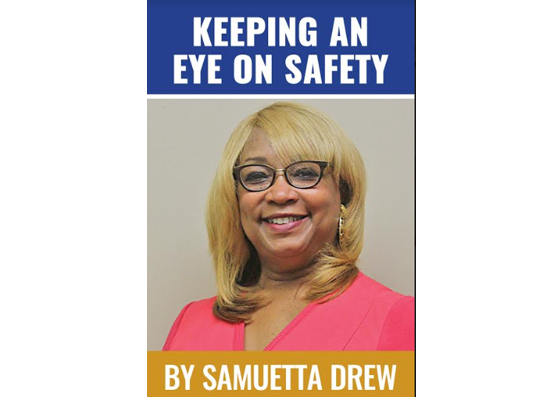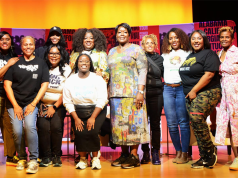By Samuetta Hill Drew
For the past year or more, the safety articles have focused solely on the COVID-19 pandemic. The COVID-19 pandemic converged on the average person almost with little or no warning until it was here and spreading rapidly. I believe a majority of the world was unprepared. Many were in disbelief and denial; a train of thought which continues to exist in many even today. Initially some referred to our living status in the midst of a pandemic like living in a sci-fi movie.
Regardless of your category of thought, sickness and deaths were and still are all around us. Therefore, COVID-19 has evolved into the number one safety issue of our times. Due to the serious nature of this pandemic, the safety articles have attempted to provide the readers with the most up-to-date aspects about the COVID-19 virus.
Since this pandemic is new, much research about it and its effects are being intensely studied daily worldwide. The safety articles have shared much of this information with you. The articles’ content were often direct quotes from the medical and/or scientific communities to ensure accuracy of the information being provided. This article is going to follow this same pattern but with a twist. It will share some alternative views on the need for boosters by some scientists.
Booster shots have been a contentious topic for scientists – in and outside the government- especially as many people in the U.S. and other parts of the world have yet to receive even one dose of a vaccine. The World Health Organization has pleaded with wealthy countries to hold off on distributing boosters, and some scientists say they aren’t convinced most Americans need them right now.
Before the recent vote at the Food and Drug Administration (FDA), some members said they were concerned about the lack of data on boosters, while others asked the agency if they could simplify the messaging on who is eligible to get the extra dose.
Some advisors were concerned that young and healthy Americans who do not need a booster might choose to get one anyway. Side effects are uncommon, but in younger Americans they may outweigh the potential benefits of booster doses the scientist said. “Those that are not at high risk should really be thoughtful about getting that dose,” said Dr. Helen Talbot, an infectious disease expert at Vanderbilt University.
These safety articles are not biased about vaccines, regardless of the type and number of doses. It rather attempts to share pertinent information, thereby allowing you to make informed decisions about Keeping an Eye on Safety for you, your family and loved ones. It is recommended you consult with your doctor regarding the need for a booster.




